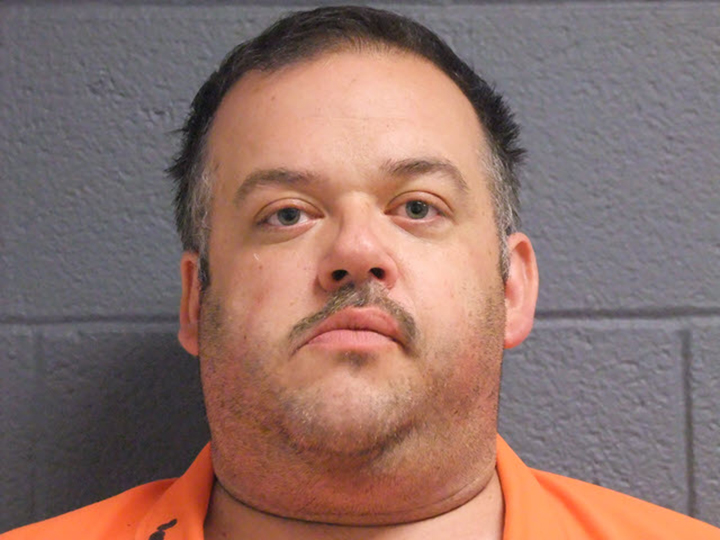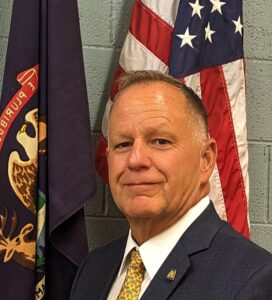Former Fair Board treasurer convicted of filming girls will stay in prison

Bradley Avery
ALPENA — The Michigan Court of Appeals has upheld the conviction and sentence of a former Alpena County Fair Board treasurer in prison for secretly filming underage girls while they changed for a beauty pageant.
The ruling means Bradley Avery will remain in prison until at least November 2025 and perhaps as late as November 2034.
A judge in July 2019 sentenced Avery to six months in jail and a year’s probation for embezzling money from the county fair while he served as Fair Board treasurer.
While investigating the embezzlement case, police seized Avery’s devices and recovered deleted videos of girls changing. Police said Avery secretly filmed the girls during a 2017 Alpena County pageant.
Police arrested Avery in 2020 and in July 2022 a jury convicted him of three counts of capturing/distributing the image of an unclothed person and one count of using a computer to commit a crime. A judge that November sentenced Avery to 13 to 60 months’ imprisonment for each count of capturing/distributing the image of an unclothed person and 23 to 84 months’ imprisonment for using a computer to commit a crime.
The judge said Avery would serve the sentences for filming the girls at the same time, while the sentence for using a computer to commit a crime would be served after he served out the other sentences. That extended the total amount of time Avery would spend behind bars.
In his appeal, Avery argued that the local court lacked sufficient evidence to convict him of shooting the videos. The defense had claimed during Avery’s trial that others had access to the laptop on which the videos were discovered and that Avery never asked the girls to change in the room where the camera was secretly placed.
The appellate court disagreed, saying that, while much of the evidence against Avery was circumstantial, “Reasonable inferences drawn from circumstantial evidence are sufficient to establish the elements of a crime.”
Testimony and other evidence at Avery’s trial showed Avery placed the camera, Avery suggested the girls change in the room where the camera was placed, Avery controlled the laptop on which the cameras were discovered, and a user named “Brad” had deleted the videos from the laptop.
“This evidence supports a clear narrative: defendant set up a camera in a private room and instructed the girls to change in the room,” the appellate court wrote in its opinion. “Defendant then filmed the girls as they changed, and saved the videos on a laptop to which only he had access. When he needed to return the laptop for the embezzlement investigation, he requested time alone with the laptop to delete personal files as a pretext for deleting the videos; however, he did not know that they would still be recoverable … It is true that this evidence could also be susceptible to alternative narratives, but the prosecution was not required to prove a negative … Therefore, we hold that the evidence presented was sufficient to support defendant’s conviction of capturing/distributing the image of an unclothed person.”
Avery also argued in his appeal that the trial court should not have ordered him to serve the sentence for using a computer to commit a crime consecutively to the sentences for filming the videos, saying the court never articulated its reasoning and he should serve all the sentences at the same time.
Again, the three appellate justices who considered Avery’s appeal disagreed, writing that “the trial court made a detailed record of its rationale: that the impact on the community, the impact on the victims, the predatory nature of the crimes, the lack of remorse, and the possibility of future footage distribution justified imposition of consecutive sentencing.”
Avery is currently housed at the Kinross Correctional Facility in the Upper Peninsula. His earliest release date is Nov. 2, 2025.
Read the full Michigan Court of Appeals opinion below.
Bradley Avery Appeal Denial by JustinHinkley on Scribd





